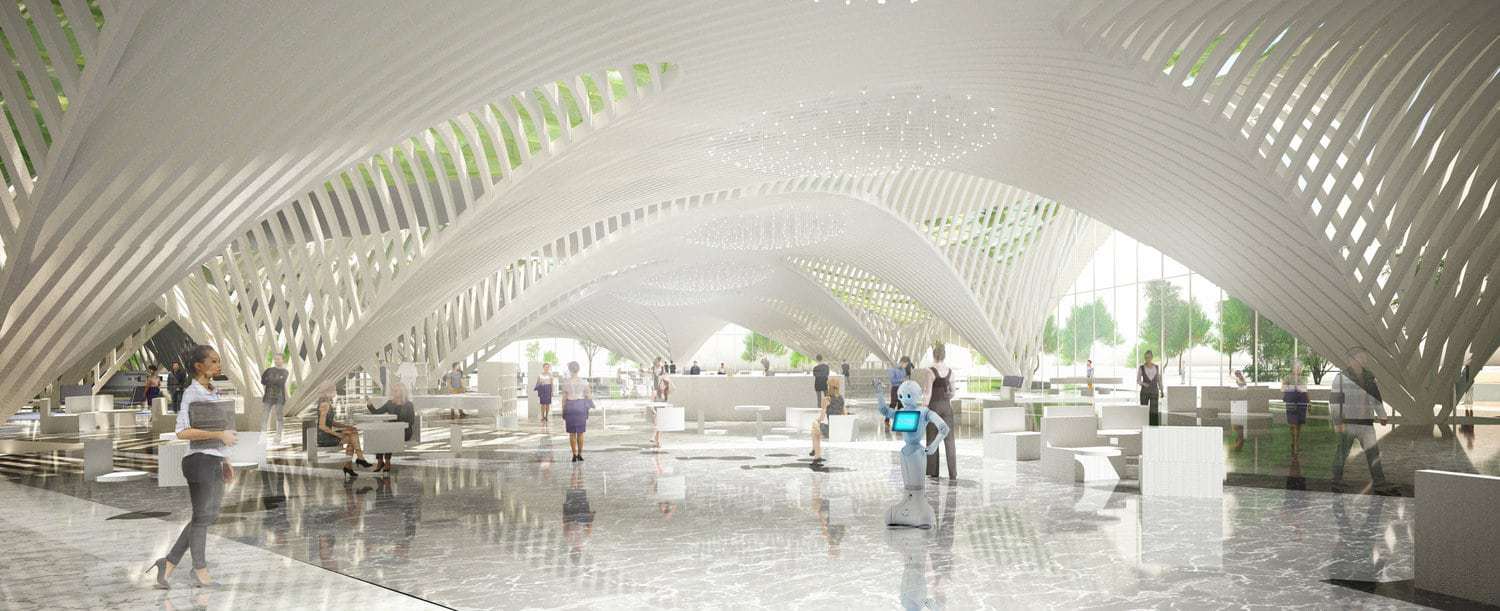Unveiled by XTU architects last month, a futuristic high rise project called FrenchDreamTowers, featuring a blockchain powered internet-of-things (IoT) network, has been proposed for the Chinese city of Hangzhou. The IoT network would manage air quality, energy storage and various environmental systems within the towers.
The network was created by Gold Truffle Engineering and would use blockchain technology to allow the smart devices in the buildings to interact. The Hangzhou-based company would be in charge of the on-site deployment of the platform, which is the first large-scale application of IoT, powered by blockchain.
Co-founder of Gold Truffle Engineering, Fadwa Sube, said: “Our platform is an IoT/AI/cloud infrastructure platform with sensors. We are tools for a decision maker. We allow them to see, to understand, to analyze and, after, to take the best decision for sustainability with a sustainable business model.”
The towers are currently under review and are the result of a Sino-French collaboration. A launch was held during the inauguration of French Dream Town at Hangzhou in June. The showcase featured solutions from more than 15 tech companies, using virtual reality, augmented reality and 3D printing.

The towers are to contain energy-efficient microalgae exteriors and their composition aims to optimize the energy use of the building. The space between the panes of glass in the windows would function as a greenhouse environment for bio-reactive cultures.
“The cultivation of microalgae on the building façade is a process that has been in development at XTU for many years. It allows for a symbiosis: the bio-façade uses thermal materials to regulate the growing temperature of algae, which in turn contributes to the thermal regulation of the building,” said Anouk Legendre, co-founder of XTU Architects.
The project is focused on meetings the needs of smart cities in the future and is supported by a Chinese commitment to increase spending on renewable energy to USD 360 billion by 2020.
images: XTU Architects




